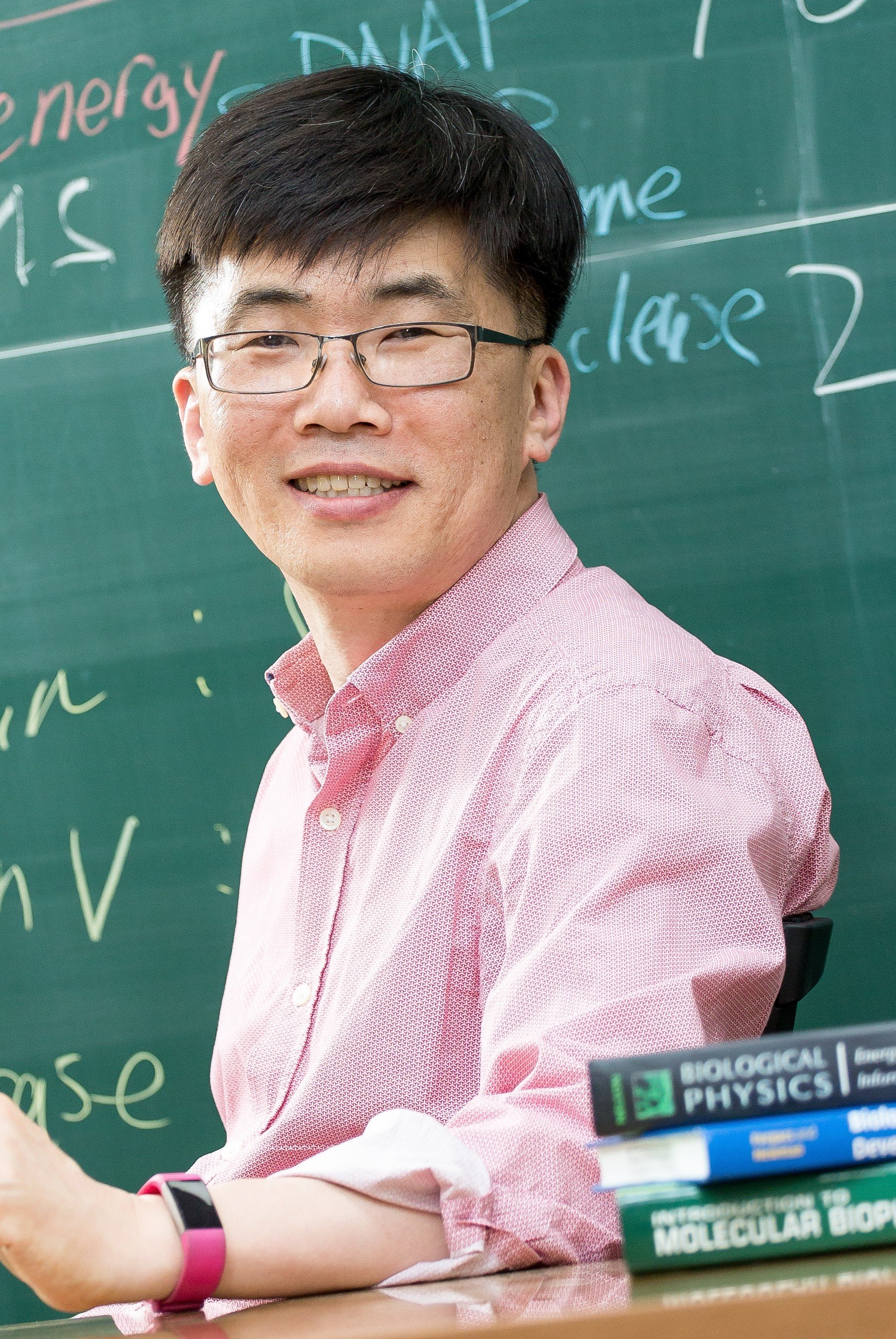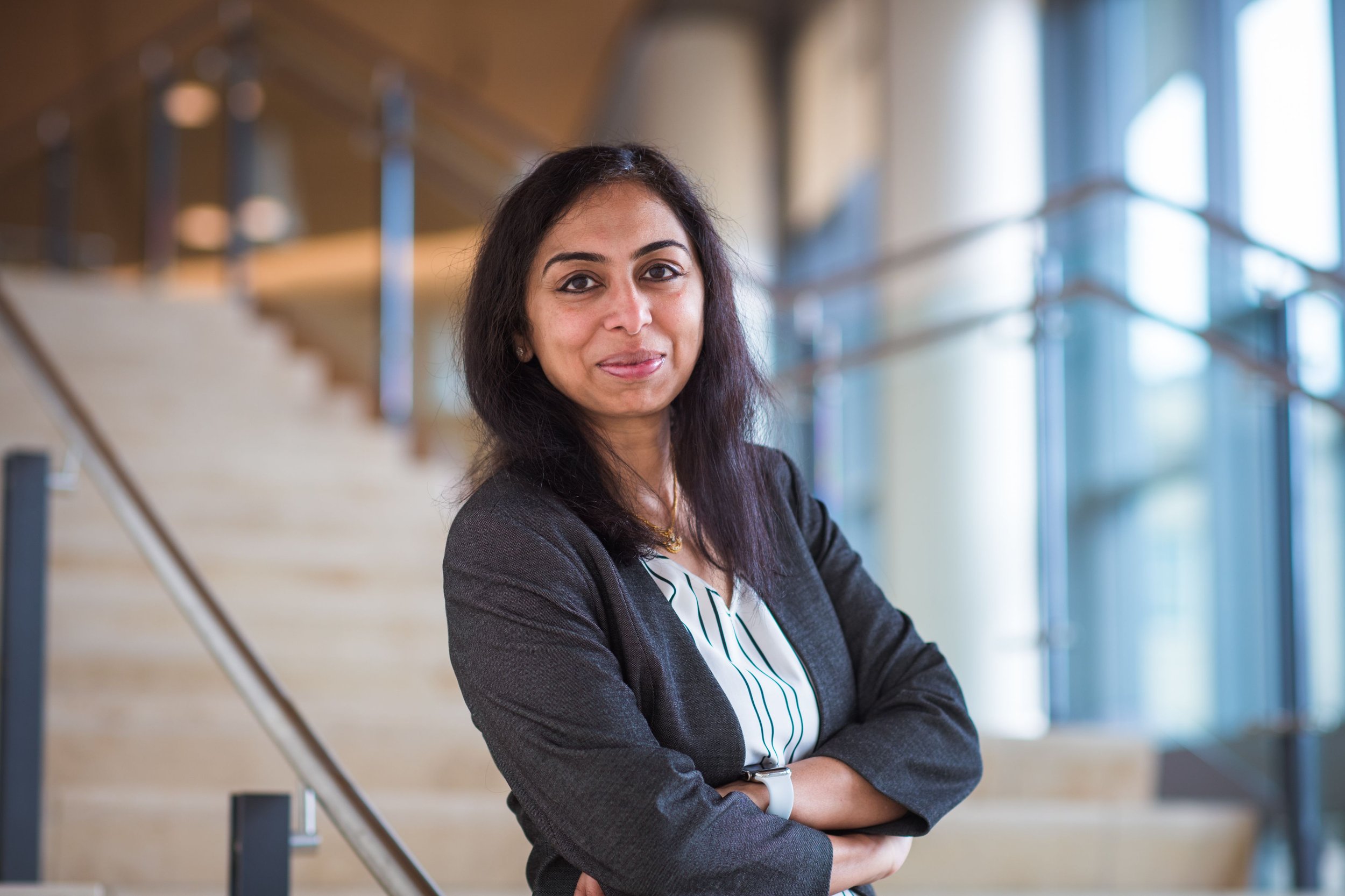
Scientist Scouts
The Hypothesis Fund’s world-class network of Scouts identify compelling seed-stage research projects that would otherwise be un-pursued or underfunded. We provide nimble funding for nimble minds.
-

Alejandro Sánchez Alvarado, Ph.D.
Molecular, Cellular, & Developmental Biology
Stowers Institute for Medical ResearchAlejandro Sánchez Alvarado is a distinguished molecular biologist and the President and Chief Scientific Officer of the Stowers Institute for Medical Research. Born in Caracas, Venezuela, he developed an interest in biology inspired by his high school teacher and the region's biodiversity. Sánchez Alvarado earned a BS in molecular biology and chemistry from Vanderbilt University and a PhD in pharmacology and cell biophysics from the University of Cincinnati College of Medicine.
His postdoctoral research at the Carnegie Institution of Washington under Dr. Donald D. Brown sparked his fascination with regeneration. Sánchez Alvarado's groundbreaking work uses the planarian flatworm Schmidtea mediterranea to study regeneration, identifying key genes and genetic programs. This research has significant implications for regenerative medicine and tissue maintenance.
A member of the American Academy of Arts and Sciences and the National Academy of Sciences, Sánchez Alvarado is also an emeritus Howard Hughes Medical Institute Investigator. He was awarded the 2023 Vilcek Prize in Biomedical Science for his contributions. His work continues to advance our understanding of regeneration and its potential applications in medicine.
-

Shelly Peyton, Ph.D.
Chemical & Biomedical Engineering
Tufts UniversityShelly Peyton is Professor and Department Chair of Biomedical Engineering at Tufts University. She received her B.S. in Chemical Engineering from Northwestern University in 2002 and went on to obtain her MS and PhD in Chemical Engineering from the University of California, Irvine in 2007. She was then an NIH Kirschstein post-doctoral fellow in the Biological Engineering department at MIT before starting her academic appointment at the University of Massachusetts Amherst in 2011, before moving to Tufts University in 2024. Shelly leads an interdisciplinary group of engineers and molecular cell biologists seeking to create and apply novel biomaterials platforms toward new solutions to grand challenges in human health. Among other honors for her work, Shelly was a 2013 Pew Biomedical Scholar, received a New Innovator Award from the NIH, and she was awarded a CAREER grant from the NSF. Shelly is a fellow of the Biomedical Engineering Society and a fellow of the American Institute for Medical and Biological Engineering. Shelly is passionate about graduate student training and diversifying the academy. She was awarded an Outstanding Teaching Award from the College of Engineering at UMass in 2018, has led an REU Site, co-directed a Biotechnology (BTP) NIH T32 training program, and was lead PI of a PREP program at UMass, which hosts students from historically excluded groups for a 1-year research-intensive program to help prepare them for graduate school. She also runs an NSF-funded program called Engineering the Cell, which brings female high school students to her lab for 5 weeks every summer. Outside of her work, Shelly is an avid cyclist, enjoys board games, travel, and is a retired ultimate frisbee player.
-

Daniel Fletcher, Ph.D.
Biophysics & Bioengineering
University of California, BerkeleyDr. Daniel Fletcher is Professor of Bioengineering and Biophysics at UC Berkeley and the Pernendu Chatterjee Chair of Engineering Biological Systems. He and his laboratory study the mechanics of cell movements and cell-cell interaction, with applications to infectious diseases, immunology, and cancer biology. They develop new measurement technologies, including optical and force microscopy, and use them to uncover basic organizational principles. He and his laboratory develop mobile phone microscopes and algorithms for disease diagnosis, with a special interest in neglected tropical diseases. Dr. Fletcher is a Chan-Zuckerberg Biohub Investigator, Faculty Scientist at Lawrence Berkeley National Laboratory, Member of the Biophysics and Computational Biology Graduate Groups, Visiting Investigator at the Gladstone Institute of Virology, and currently serves as Faculty Director of the Blum Center for Developing Economies at UC Berkeley. Dr. Fletcher received a B.S. from Princeton University, a D.Phil. from Oxford University where he was a Rhodes Scholar, and a Ph.D. from Stanford University as an NSF Graduate Research Fellow.
-

Jeanne Stachowiak, Ph.D.
Biophysics, Biomedical & Chemical Engineering
University of Texas at AustinProf. Jeanne Stachowiak completed her undergraduate education in Mechanical Engineering at the University of Texas at Austin in 2002. She completed her doctoral work in Mechanical Engineering at the University of California, Berkeley in 2008, under the supervision of Arun Majumdar and Daniel Fletcher. She served as a Senior Member of the Technical Staff at Sandia National Laboratories from 2008 to 2011, where her independent research program explored basic biophysical questions and practical applications of lipid membrane materials and systems. She has served as a faculty member at the University of Texas at Austin since January 2012, in the Departments of Biomedical Engineering and Chemical Engineering. She was promoted to Associate Professor in 2018 and Full Professor in 2023. Through quantitative molecular-scale measurements and the design of biomimetic materials, her research program aims to elucidate the physical basis of cellular membrane organization and to design biologically-inspired materials and systems for biomedical applications. In 2022 she was elected a Fellow of the American Institute of Medical and Biological Engineers. She currently serves on the Editorial Board of the Biophysical Journal and Science Advances.
-

Paul Turner, Ph.D.
Evolutionary Biology & Virology, Yale University
Dr. Turner is the Rachel Carson Professor of Ecology and Evolutionary Biology at Yale University, and Microbiology Faculty Member at Yale School of Medicine. He received his Ph.D. from Michigan State University in 1995, did postdoctoral work at the National Institutes of Health, University of Valencia, Spain, and University of Maryland, College Park before joining Yale in 2001. Dr. Turner’s research focuses on virus evolution, phage-bacteria interactions, and phage therapy. He is a member of the National Academy of Sciences, the American Academy of Arts and Sciences, and the American Academy of Microbiology. Dr. Turner currently directs Yale’s Center for Phage Biology and Therapy, and the Quantitative Biology Institute.
-

Xiaowei Zhuang, Ph.D.
Biophysics, Harvard University
Xiaowei Zhuang is an investigator of Howard Hughes Medical Institute and the David B. Arnold Professor of Science at Harvard University. She pioneered the development of super-resolution imaging and genome-scale imaging methods. She invented STORM, a super-resolution imaging method, and discovered novel molecular structures in cells using STORM. She invented MERFISH, a genome-scale imaging and spatially resolved single-cell genomics method, and made discoveries in the areas ranging from the cellular organization and functions in complex tissues to gene regulation in cells.
Zhuang received her Ph.D. degree in physics under the supervision of Prof. Y. R. Shen from University of California at Berkeley, and her postdoctoral training in biophysics in the lab of Prof. Steven Chu at Stanford University. She received honorary doctorate degrees from the Stockholm University, the Delft University of Technology, and the Icahn School of Medicine at Mount Sinai. She is a member of the National Academy of Sciences, National Academy of Medicine, and the American Academy of Arts and Sciences, a fellow of the National Academy of Inventors, a member of the American Philosophical Society, and a foreign associate of the Chinese Academy of Sciences and the European Molecular Biology Organization. Her awards include the National Inventors Hall of Fame, Dreyfus Prize in Chemical Sciences, Heinrich Wieland Prize, Breakthrough Prize in Life Sciences, Heineken Prize for Biochemistry and Biophysics, Lurie Prize in Biomedical Sciences, Vilcek Prize in Biomedical Science, Pearl Meister Greengard Prize, National Academy of Sciences Award for Scientific Discovery, Raymond and Beverly Sackler International Prize in Biophysics, Max Delbruck Prize in Biological Physics, MacArthur Fellowship.
-

Janet Jansson, Ph.D.
Microbiology, Ecology, and Molecular Biology, Pacific Northwest National Laboratory (Emerita)
Janet Jansson is an Emeritus Chief Scientist and Laboratory Fellow at the Pacific Northwest National Laboratory (PNNL), where she served from 2014-2021. Previously, she was a Professor and Vice Dean at the Swedish University of Agricultural Sciences (2003-2007), Senior Scientist at Lawrence Berkeley National Laboratory (2007-2014) and Adjunct Professor at UC Berkeley and University of Copenhagen (2012-2014). Her research focuses on the impacts of perturbations, such as oil spills and climate change, on environmental microbiomes. Jansson also pioneered use of molecular microbial ecology to study the human microbiome. She made considerable advances in understanding the impact of climate change on permafrost and grassland soil microbiomes and viruses. In addition, she recently led the first study of soil microbiomes in space that was funded by NASA. Jansson is a Fellow of the American Academy of Microbiology, Washington State Academy of Science and AAAS. She has >250 publications (H-Index 92) and is one of the most highly cited researchers in the world. She is Past President of ISME and has served on numerous advisory panels, including the White House’s Microbiome Initiative, the National Academies of Sciences, the U.S. National Committee for Soil Science and NASA.
-
Taekjip Ha, Ph.D.
Biophysics, Harvard Medical School
Dr. Taekjip Ha is a Professor of Pediatrics at Harvard Medical School and Cellular & Molecular Medicine at Boston Children’s Hospital, and an investigator with the Howard Hughes Medical Institute.
He analyzes single molecules to understand how they act in complex biological systems. Dr. Ha and his team combine sophisticated biophysical manipulation techniques with fluorescence imaging to visualize and manipulate protein, RNA, and DNA molecules. Probing these molecules allows the researchers to decipher such innate properties as a molecule’s “bendability” and how it binds and interacts with other molecules. Ha’s team strives to emulate or work within natural cellular environments while studying single molecules, testing diverse protein-nucleic acid and protein-protein interactions at unprecedented spatial and temporal resolution.
Dr. Ha received a bachelor in Physics from Seoul National University in 1990 and Physics Ph.D from University of California at Berkeley in 1996. After postdoctoral training at Stanford, he was a Physics professor at University of Illinois at Urbana-Champaign until 2015.
Dr. Ha serves on Editorial Boards for Science. He is a member of the National Academy of Science and the National Academy of Medicine, and a fellow of the American Academy of Arts and Sciences. He received the 2011 HoAm Prize in Science and was elected as President of the Biophysical Society in 2021.
-
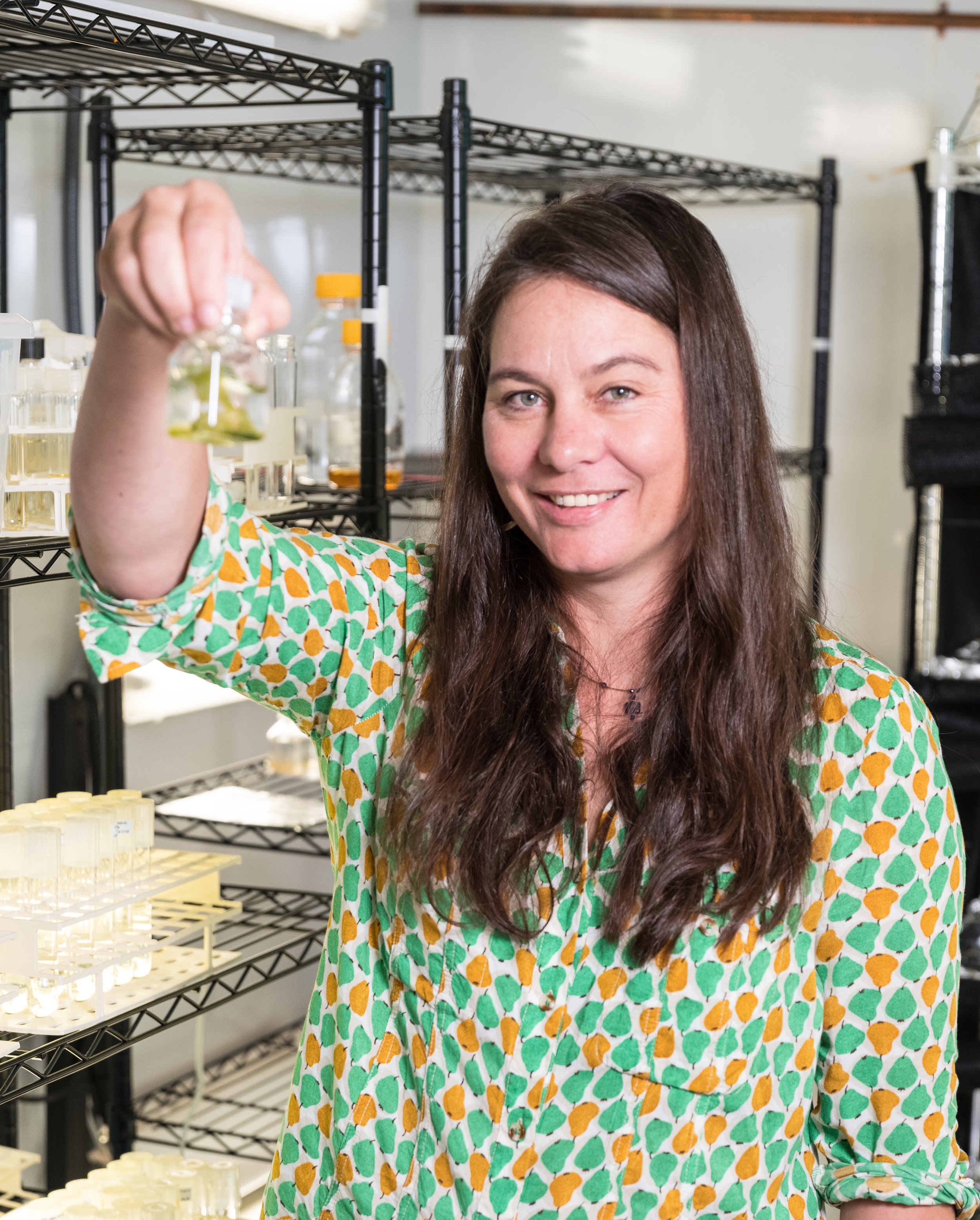
Angelicque White, Ph.D.
Biological Oceanography, University of Hawaii at Manoa
Angelicque White is a Professor of Biological Oceanography at the University of Hawaii at Manoa. The fundamental objective of her research is to develop an enhanced and mechanistic understanding of the chemical and biological processes that define the fluxes, standing stocks and productivity of the oceanic component of Earth’s life support system. Accordingly, her research skill set and interests are broad, spanning the following topical areas: phytoplankton physiology, nitrogen fixation, phosphorus cycling, elemental stoichiometry, hyperspectral absorbance, attenuation and fluorescence, harmful algal blooms, numerical approaches to modeling phytoplankton‐mediated processes, and utilization of remote sensing tools to explore habitat variability.
In 2019, Angelicque was named Principal Investigator of the Hawaii Ocean Time-series - one of the longest running open ocean research programs in the world. She is also an investigator in the Simons Collaboration on Ocean Processes and Ecology (SCOPE).
She received bachelors (1998) and masters (2001) degrees in Biology from the University of Alabama, and a Ph.D. in Biological Oceanography from Oregon State University in 2006
Angelicque has received numerous recognitions for her work including the University of Hawaii Board of Regents’ Medal for Excellence in Research, the ASLO Yentsch-Schindler Early Career Award (2016) and the AGU Early Career Award (2015). She was a National Academies of Science Kavli Fellow and an Alfred P. Sloan Research Fellow.
-
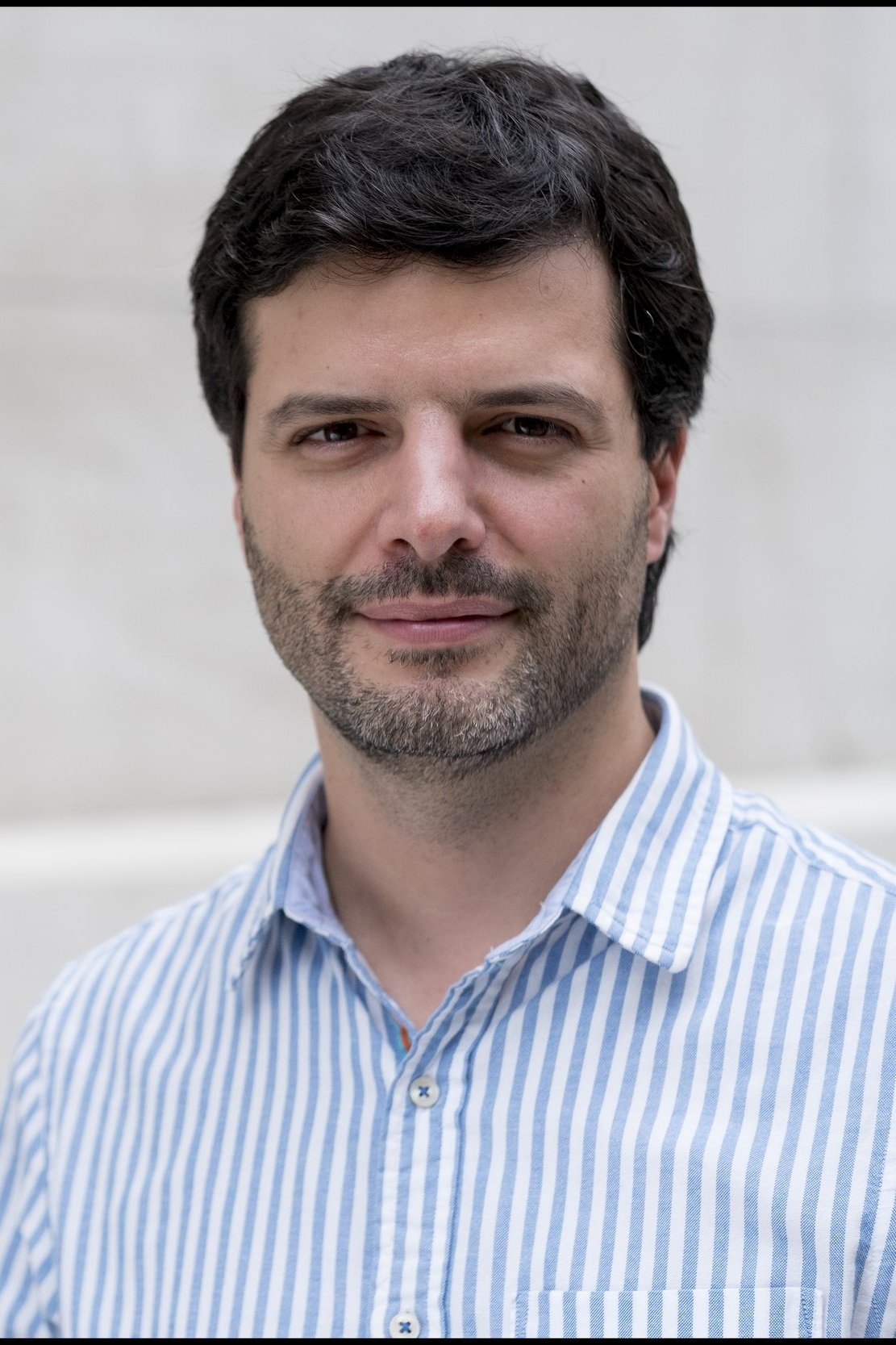
Gabriel Victora, Ph.D.
Immunology, Virology, & Microbiology,
The Rockefeller UniversityGabriel D. Victora is the Laurie and Peter Grauer Associate Professor and head of the Laboratory of Lymphocyte Dynamics at Rockefeller University. He received a Ph.D. in Immunology from the New York University Medical School in 2011. From 2012 to 2016, he was a Whitehead Fellow at the Whitehead Institute for Biomedical Research at MIT. He joined the faculty of the Rockefeller University in 2016. Work in the Victora lab combines mouse genetics and microscopy to study the clonal and cellular dynamics of the antibody response, with particular focus on how B cells respond to immunization and infection. He was a 2017 MacArthur Fellow.
-
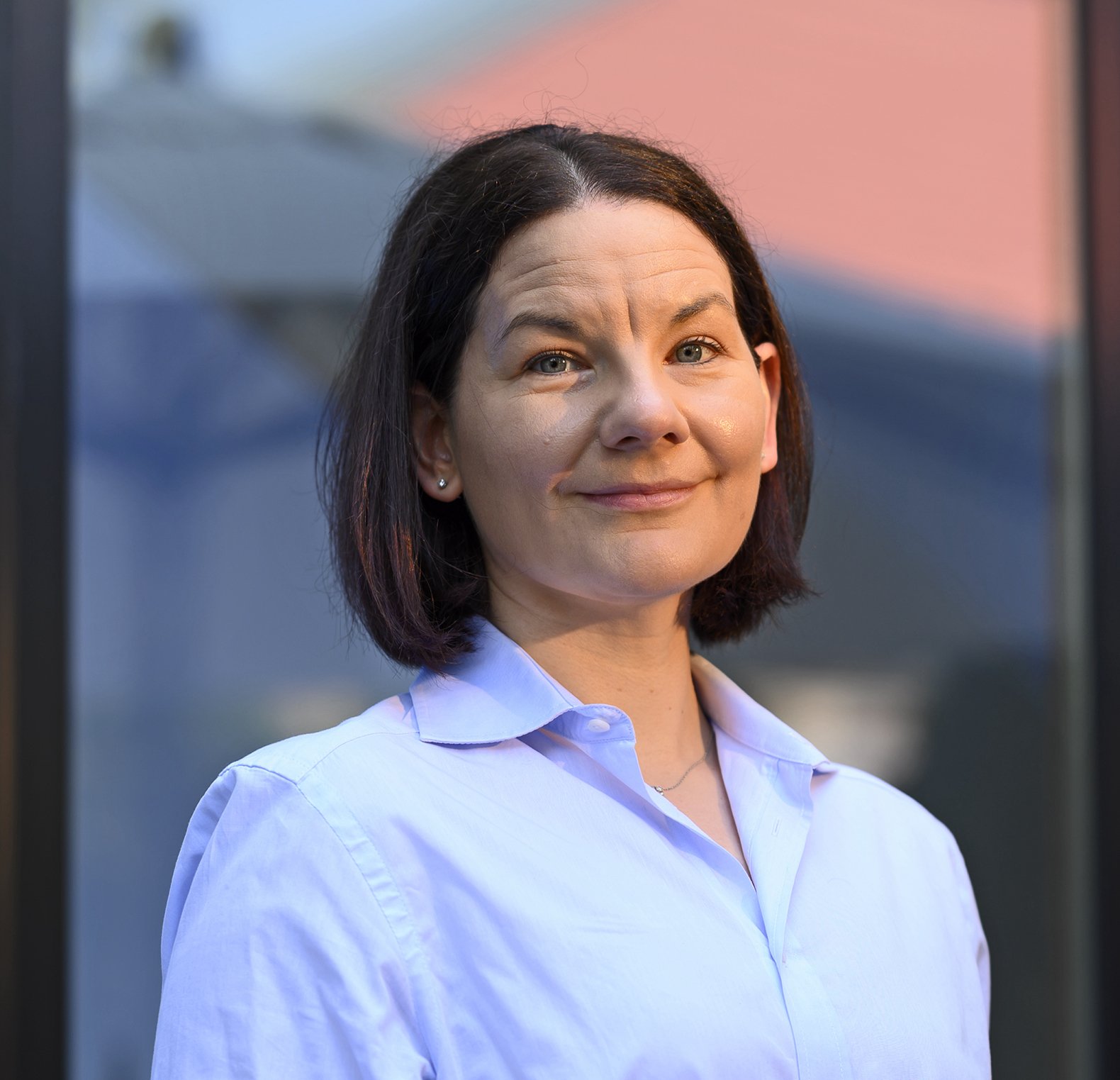
Emily Balskus, Ph.D.
Chemistry & Microbiology, Harvard University
Emily Balskus is the Thomas Dudley Cabot Professor of Chemistry at Harvard University and a Howard Hughes Medical Institute Investigator. She is also an Institute Member of the Broad Institute of Harvard and MIT. She received her B.A. in chemistry from Williams College in 2002, her PhD in organic chemistry from Harvard University in 2008, and pursued postdoctoral research in biochemistry, enzymology, and microbiology at Harvard Medical School. Dr. Balskus’s research program focuses on deciphering microbial metabolism and its role in complex microbial ecosystems like the human gut microbiome. Using chemical knowledge and tools, the Balskus Lab seeks to discover new microbial enzymes and metabolites as well as elucidate their biological roles. They have contributed to our understanding of how gut microbes consume essential dietary nutrients, produce DNA-damaging genotoxins, and metabolize drugs. Overall, their work is delineating a general experimental strategy for investigating gut microbial metabolism and its links to human health and disease. Dr. Balskus’s research program has been recognized with multiple awards, including the 2011 Smith Family Award for Excellence in Biomedical Research, the 2012 NIH Director’s New Innovator Award, the 2013 Packard Fellowship for Science and Engineering, the 2019 Blavatnik Award for Young Scientists in Chemistry, and the 2020 Alan T. Waterman Award from National Science Foundation.
-
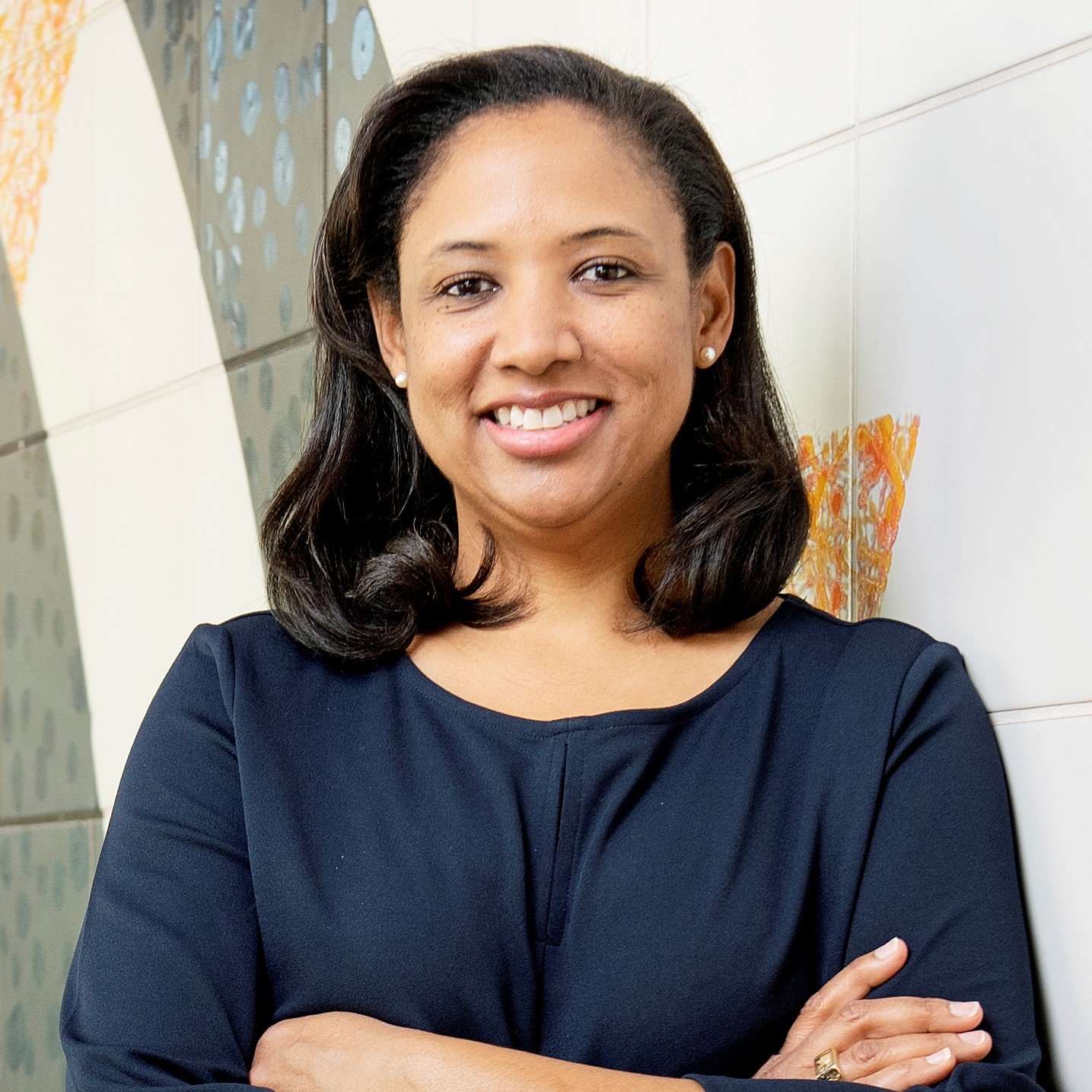
Kristala Prather, Ph.D.
Chemical Engineering / Engineering Biology, MIT
Kristala L.J. Prather is the Arthur D. Little Professor in and Executive Officer of the Department of Chemical Engineering at MIT. She received an S.B. degree from MIT in 1994 and Ph.D. from the University of California, Berkeley (1999), and worked 4 years in BioProcess Research and Development at the Merck Research Labs prior to joining MIT. Her research interests are centered on the design and assembly of recombinant microorganisms for the production of small molecules, with additional efforts in novel bioprocess design approaches. Prather is the recipient of an Office of Naval Research Young Investigator Award (2005), a Technology Review “TR35” Young Innovator Award (2007), a National Science Foundation CAREER Award (2010), the Biochemical Engineering Journal Young Investigator Award (2011), the Charles Thom Award of the Society for Industrial Microbiology and Biotechnology (2017), and the Andreas Acrivos Award for Professional Progress in Chemical Engineering of the American Institute of Chemical Engineers (AIChE, 2021). Additional honors include selection as a Fellow of the Radcliffe Institute for Advanced Study (2014-2015), the American Association for the Advancement of Science (AAAS; 2018), the American Institute for Medical and Biological Engineering (AIMBE; 2020), and AIChE (2020).
-
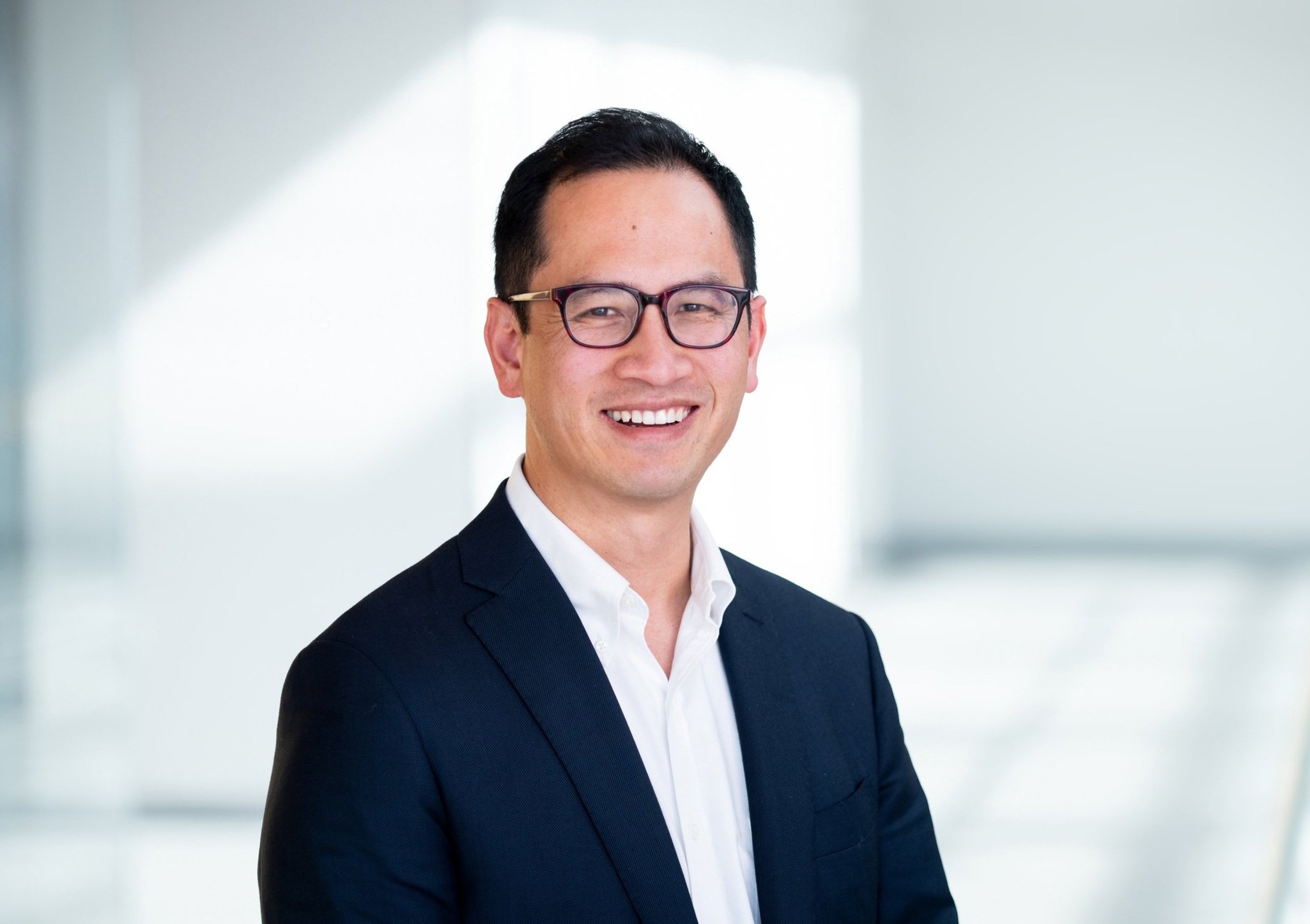
Edward Chang, M.D.
Neurosurgery, UCSF
Edward Chang is the Joan and Sanford Weill Chair and Jeanne Robertson Distinguished Professor of Neurological Surgery at the University of California, San Francisco. Dr. Chang’s clinical expertise is surgical therapies for epilepsy, pain, and brain tumors. His research focuses on the discovery of cortical mechanisms of high-order neurological function in humans. Dr. Chang’s laboratory has demonstrated the detailed functional organization of the human speech cortex and has translated those discoveries towards the development of a speech neuroprosthetic device to restore communication for people living with paralysis.
-
Yamuna Krishnan, Ph.D.
Chemistry, University of Chicago
Yamuna Krishnan is a Professor of Chemistry, and Faculty at the Grossman Institute of Neuroscience at the University of Chicago. Her group pioneered the application of DNA nanotechnology in living systems by developing organelle-targeted DNA nanodevices. This development unplugged decades-old bottlenecks in cell biology and enabled the study of cell physiology at the nanoscale. Selected honors include the Shanti Swarup Bhatnagar Award for Chemical Sciences, the Infosys Prize for Physical Sciences, the Ono Pharma Foundation Breakthrough Award and the Sun Pharma Award for Basic Medical Research. She was on Cell’s 40 under 40 list of scientists shaping current and future trends in biology. She has co-founded two companies, Esya Inc and MacroLogic Inc for diagnostics and therapeutics respectively based on her organelle-targeting nanotechnology. She is on the Editorial Board and Advisory Board of several journals from the Royal Society of Chemistry, American Chemical Society, Wiley and Cell Press.
-
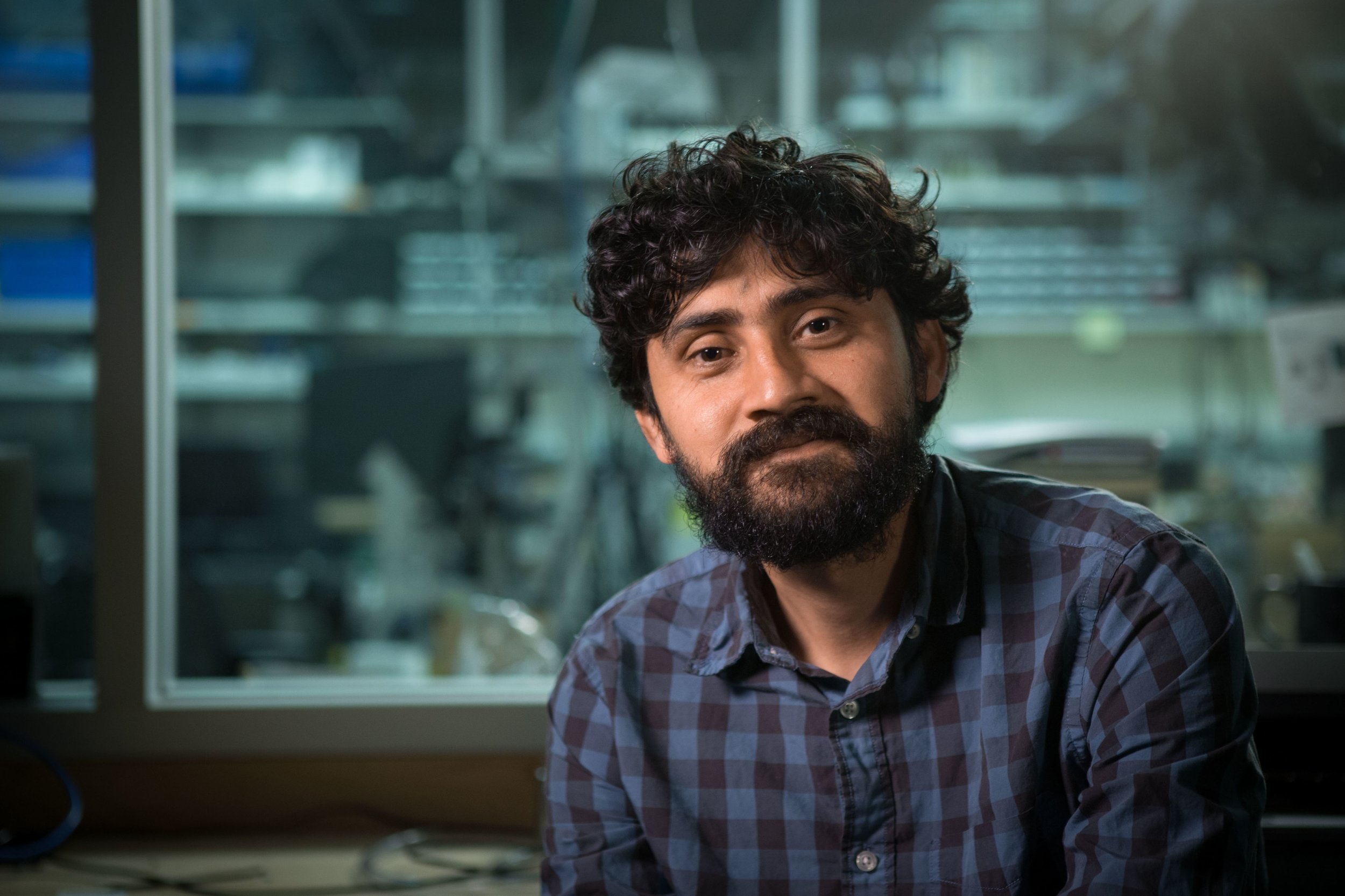
Manu Prakash, Ph.D.
Bioengineering, Stanford University
Manu Prakash is a physical biologist applying his expertise in soft-matter physics to illuminate often easy to observe but hard to explain phenomena in biological and physical contexts and to invent solutions to difficult problems in global health, science education, and ecological surveillance. His many lines of research are driven by curiosity about the diversity of life forms on our planet and how they work, empathy for problems in resource-poor settings, and a deep interest in democratizing the experience and joy of science globally.
Prakash received a B.Tech. (2002) from the Indian Institute of Technology Kanpur and a Ph.D. (2008) from the Massachusetts Institute of Technology. He was a junior fellow of the Harvard Society of Fellows (2008–2011) prior to joining the faculty of Stanford University, where he is currently an Associate Professor in the Department of Bioengineering, a member of the Biophysics Program in the School of Medicine and the Center for Innovation in Global Health, Faculty Fellow of Stanford ChEM-H, and a senior fellow of the Woods Institute for the Environment. Prakash was recipient of 2016 MacArthur fellowship.
-

Elaine Hsiao, Ph.D.
Integrative Biology & Physiology, UCLA
Elaine Hsiao is De Logi Associate Professor of Biological Sciences in the Department of Integrative Biology & Physiology, where she leads a laboratory studying fundamental interactions between the microbiome, brain and behavior, and their applications to neurological disorders. Inspired by the interplay between the microbiota and nervous system, the Hsiao laboratory is mining the human microbiota for microbial modulators of host neuroactive molecules, investigating the impact of microbiota-immune system interactions on neurodevelopment and examining the microbiome as an interface between gene-environment interactions in neurological diseases. Their discoveries have led to several honors, including the Chan Zuckerberg Initiative Ben Barres Career Award, Packard Fellowship in Science and Engineering, Alfred P. Sloan Fellowship in Neuroscience, Klingenstein-Simons Fellowship in Neuroscience, Kavli Fellowship of the National Academy of Sciences, National Institutes of Health Director’s Early Independence Award, Forbes’ 30 Under 30 in Science and Healthcare and National Geographic’s Emerging Explorer Award. Elaine received her Ph.D. in Neurobiology from Caltech, and her B.S. in Microbiology, Immunology and Molecular Genetics form UCLA.
-
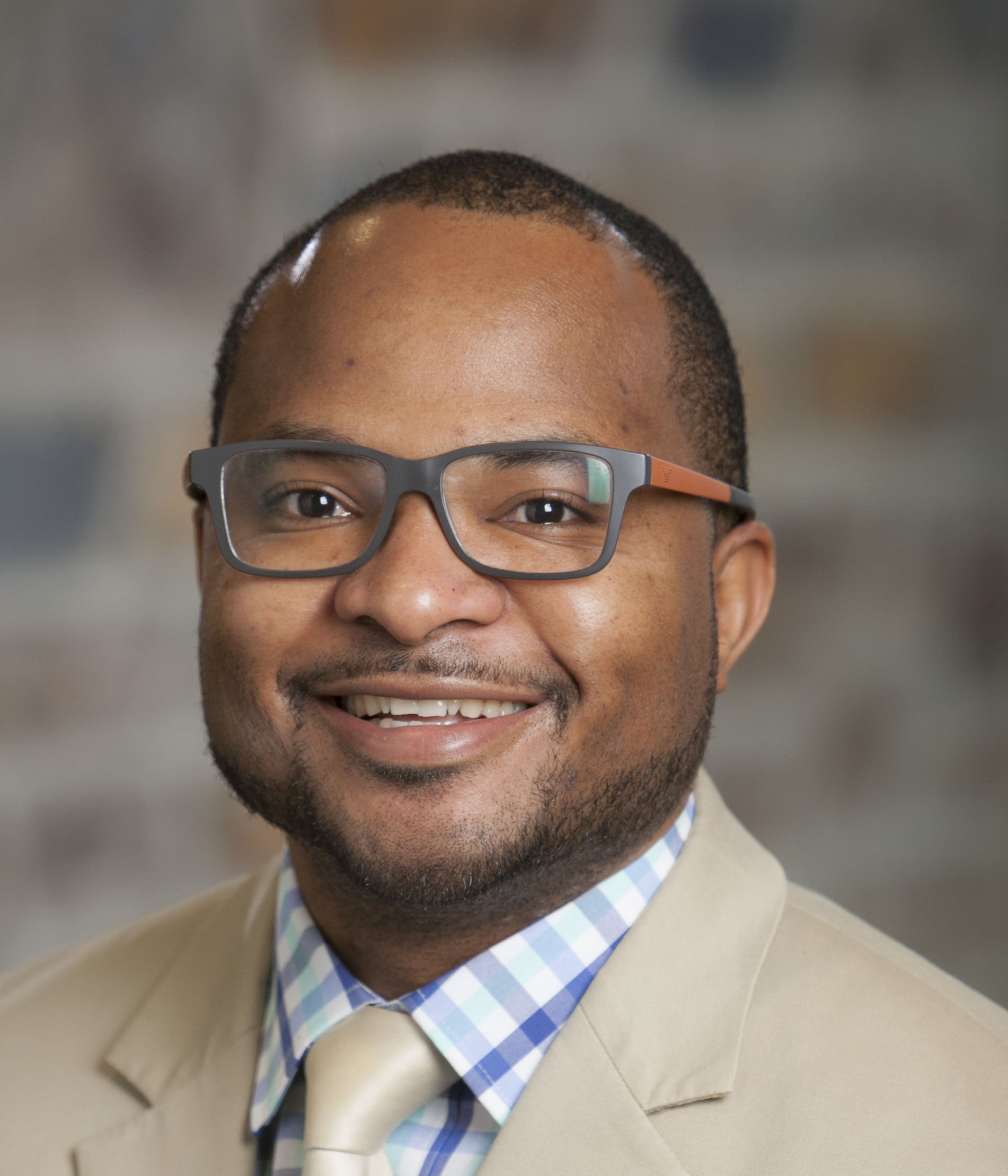
Wilton Williams, Ph.D.
Immunology, Duke University
Wilton Bryan Williams, Ph.D. is an Associate Professor in the Department of Surgery, Division of Surgical Sciences, and Assistant Professor in Immunology, at Duke University School of Medicine. He is also a primary member of the Duke Human Vaccine Institute (DHVI) where he serves as the Co-Director for Training and Mentoring, and Director of the Viral Genetics Analysis Service Center. He earned his BA in Chemistry (Biochemistry concentration) from Hunter College, City University of New York, in 2004, and his Ph.D. in Biomedical Sciences from the University of Florida in 2011. At the University of Florida, Dr. Williams studied HIV pathogenesis under the mentorship of Dr. Maureen Goodenow, but later pursued postdoctoral studies in HIV Immunobiology and Vaccine Development at Duke University under the mentorship of Drs. Barton Haynes and Georgia Tomaras. Dr. Williams’ research at the DHVI is primarily focused on understanding host immunity, particularly B cell-derived antibody responses to HIV infection in humans, and Simian-HIV (SHIV) infections in non-human primates (NHPs) that serve as animal models for human HIV-1 infection. Dr. Williams has been an investigator of a number of program grants and large consortium grants for HIV-1 vaccine development and basic immunology.
-

Kay Tye, Ph.D.
Systems Neurobiology, Salk Institute
Kay M. Tye is a Professor and Wylie Vale Chair of the Systems Neuroscience Laboratory at the Salk Institute for Biological Sciences, and an adjunct faculty member at the University of California, San Diego (UCSD). Her research program is focused on understanding the neurobiological mechanisms underlying social and emotional processes at the circuit, cellular and synaptic levels, particularly those relevant to psychiatric disease.
Her professional training began at the Massachusetts Institute of Technology (MIT) where she graduated with a major in Brain and Cognitive Sciences in 2003. After taking a year off to travel, she earned her PhD at the University of California, San Francisco (UCSF) in 2008, and trained as a postdoctoral fellow at Stanford University from 2009-2011. She then became an Assistant Professor at MIT in 2012, and was promoted to Associate Professor with Tenure in 2018. She then moved her laboratory to the Salk Institute in 2019 and became an HHMI Investigator in 2021.
Professor Tye has been recognized with a number of prestigious research awards including the NIH Director's New Innovator Award, the Presidential Early Career Award for Scientists and Engineers, the Society for Neuroscience Young Investigator Award, Technology Review's Top 35 Innovators under 35, and the NIH Director's Pioneer Award. She has also been recognized with a number of awards for mentoring at the undergraduate, graduate and postdoctoral level. Further, she is committed to outreach, promoting diversity and inclusion in science.
-

Rob Knight, Ph.D.
Bioengineering, UCSD
Rob Knight is the founding Director of the Center for Microbiome Innovation and Professor of Pediatrics, Bioengineering, and Computer Science & Engineering at UC San Diego. He is a Fellow of the American Association for the Advancement of Science and of the American Academy of Microbiology, and received the 2019 NIH Director’s Pioneer Award and 2017 Massry Prize. His lab has produced many of the software tools and laboratory techniques that enabled high-throughput microbiome science, including QIIME and UniFrac. He is co-founder of the Earth Microbiome Project, the American Gut Project, and the company Biota, Inc., which uses DNA from microbes in the subsurface to guide oilfield decisions. His work has linked microbes to a range of health conditions, enhanced our understanding of microbes in many environments, and made high-throughput sequencing accessible to thousands of researchers around the world. He set up and runs the wastewater COVID-19 detection program at UC San Diego, which deploys over 140 robotic autosamplers and analyzes samples the same day by qPCR, and co-founded the EXCITE COVID-19 testing lab at UC San Diego, which performs thousands of clinical tests per day and also sequences viral genomes out of wastewater and clinical samples.
-

Karmella Haynes, Ph.D.
Biomedical Engineering, Emory University
Karmella Haynes is an Assistant Professor of Biomedical Engineering at Emory University. She earned her Ph.D. studying epigenetics and chromatin in Drosophila at Washington University, St. Louis. Postdoctoral fellowships at Davidson College and Harvard Medical School introduced her to synthetic biology. Her Davidson HHMI postdoc fellowship project on bacterial computers was recognized as “Publication of the Year” in 2008 by the Journal of Biological Engineering.
Today, her research aims to apply the intrinsic properties of chromatin, the DNA-protein structure that packages eukaryotic genes, to engineer proteins and nucleic acids that control cell development. After Dr. Haynes joined the faculty at the Emory School of Medicine in 2019, she received an NIH R21 grant (2019) to develop new protein engineering and computational tools for cancer epigenetics, and launched the annual NSF-funded AfroBiotech conference series (2019).
She is a founder and instructor of the Cold Spring Harbor Summer Course on Synthetic Biology (2013 – present), a member of the national Engineering Biology Research Consortium (EBRC, 2014 – present), past advisor and current Judge Emeritus for the annual International Genetically Engineered Machines (iGEM) competition (2007 – present), and a member of the NIH National Scientific Advisory Board for Biosecurity (2021).
She was named one of 1000 Inspiring Black Scientists by Cell Mentor (Cell Press 2020), was a featured guest on PBS NOVA (2020) and PRI’s Science Friday (2016), was profiled in Forbes magazine (2020), and received Color Magazine’s Women of Color: Innovator in STEM award (2021).
-
Devaki Bhaya, Ph.D.
Microbiology, Carnegie Institute for Science
Devaki Bhaya is Senior Staff Scientist at the Carnegie Institution for Science (Division of Biosphere Sciences and Engineering) and Professor, by courtesy, at the Department of Biology, Stanford University. Devaki was born and raised in India, earned her Ph. D. from Cornell University in Plant Biochemistry, returned to Delhi to develop the Center for Biotechnology, at Nehru University before joining the Carnegie Institution. Dr. Bhaya studies an ancient and important group of photosynthetic cyanobacteria. Her group along with collaborators use molecular and computational tools to probe microbial diversity, viruses and environmental stress in extreme environments, such as in the hot springs of Yellowstone National Park. As Program Director at the National Science Foundation, she organized science panels and worked with other Federal agencies. Devaki has been in leadership roles, served on several committees, editorial boards and is an elected lifetime member of the California Academy of Sciences. She recently served as Chair of the first ever Carnegie Climate Survey and enjoys thinking about strengthening the interfaces between art, science and society.
-
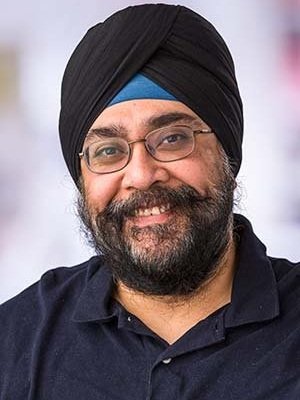
Harmit Malik, Ph.D.
Basic Sciences, Fred Hutchinson Cancer Center (UW)
Harmit Malik got his BTech, Chemical Engineering, Indian Institute of Technology, Mumbai, India. He then moved to the US to get his PhD in Biology, at the University of Rochester, NY. In 1999, he moved to Seattle to the Fred Hutchinson Cancer Research Center (the “Hutch"), to do his postdoc with Dr. Steve Henikoff. In 2003, he started his own lab at the Hutch, where he has been ever since.
In 2009, he was awarded an Early Career Scientist of the Howard Hughes Medical Institute and a Full Investigator in 2013. Harmit Malik studies the causes and consequences of genetic conflicts that take place between different genomes (e.g., host-virus interactions, mitochondrial conflicts with nuclear genomes) or between components of the same genome (e.g., chromosomal competition at centromeric regions). He is interested in understanding these "molecular arms races" and how they drive recurrent genetic innovation, from the perspective of both evolutionary biology and human disease. His work has received significant accolades for him and his lab members. Most recently, he was awarded the 2017 Eli Lilly Prize in Microbiology, the most prestigious prize awarded by the American Society of Microbiology, and elected to the US National Academy of Sciences in 2019.
-
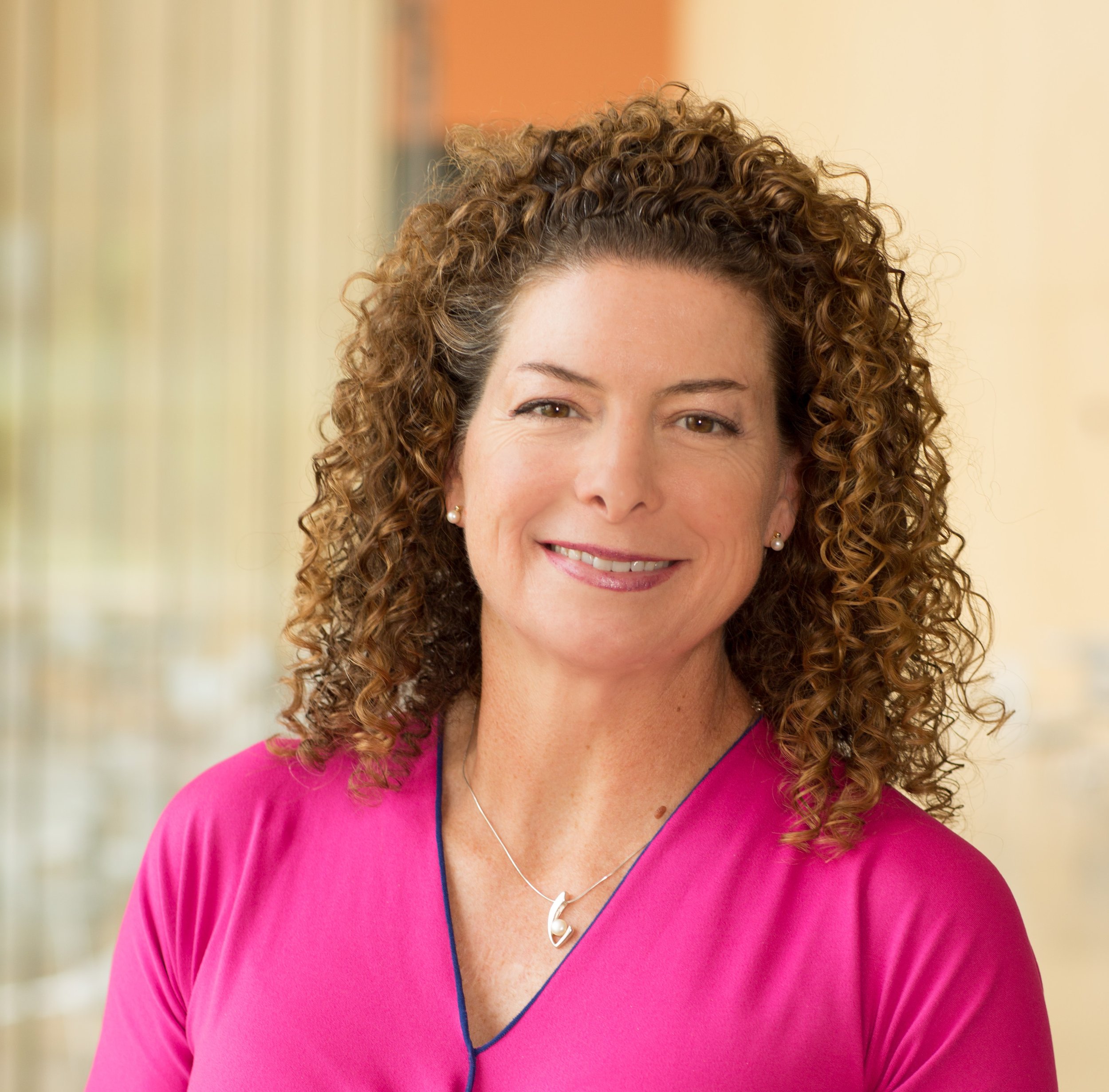
Coleen Murphy, Ph.D.
Molecular Biology, Princeton University
Coleen T. Murphy is a Professor of Genomics and Molecular Biology at Princeton University, the Director of the Simons Foundation for Plasticity in the Aging Brain (SCPAB) and Director of the Glenn Foundation for Aging Research at Princeton. She graduated from the University of Houston with a B.S. in Biochemistry & Biophysics, earned her doctorate in Biochemistry at Stanford University, then did her postdoctoral work at UCSF with Dr. Cynthia Kenyon, where she identified the set of genes downstream of the insulin signaling/FOXO longevity pathway.
In her lab at Princeton, Dr. Murphy’s team has developed C. elegans models of human “quality of life” aging phenotypes, including cognitive aging and reproductive aging, and identified remarkably well-conserved genetic pathways that can extend each of these processes with age. Most recently, Dr. Murphy’s team made the surprising discoveries that C. elegans can “read” the small RNAs that bacteria produce and use the information to avoid pathogens, and transmit this learned information both vertically (transgenerationally) and horizontally (to neighboring animals) via a retrotransposon’s viral-like particles. These results have opened up new avenues of research into memory transfer, transgenerational inheritance, and small-RNA-mediated trans-kingdom communication.
-
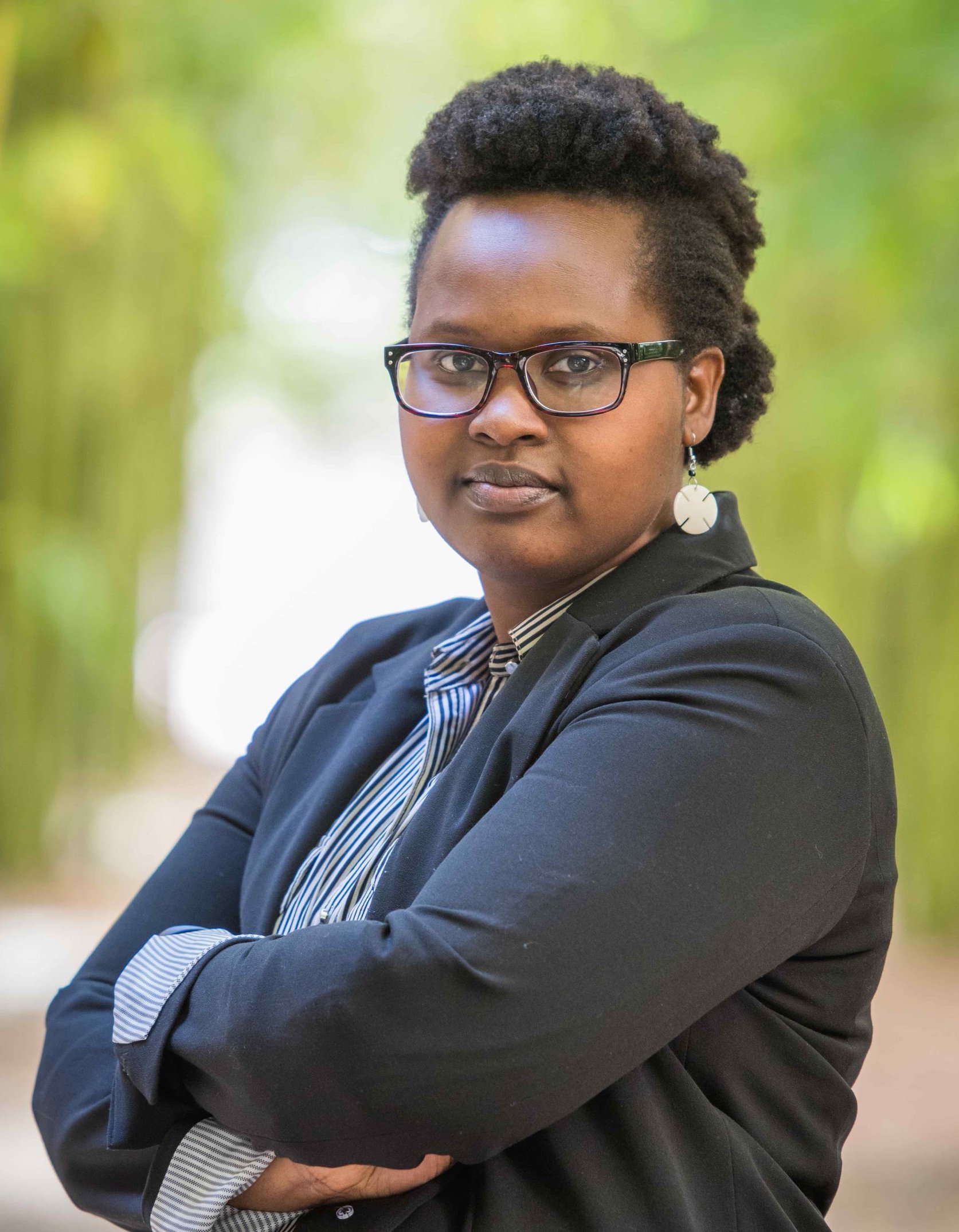
Mireille Kamariza, Ph.D.
Chemical Biology and Bioengineering, UCLA
Dr. Mireille Kamariza is an Assistant Professor in the Department of Bioengineering at the University of California, Los Angeles. She is a chemical biologist with expertise building diagnostics tools against infectious pathogens.
She previously was a Junior Fellow at the Harvard Society of Fellows working with Prof. Pardis Sabeti at the Broad Institute of Harvard and MIT. During this time, she developed multiplexed high-throughput diagnostic assays against deadly infectious diseases (e.g., Ebola, Lassa Virus, etc.) to support global outbreak surveillance and prevention. In addition, she partnered with the African Centre of Excellence for Genomics of Infectious Diseases (ACEGID) to implement CRISPR-Cas13 diagnostic testing in Ede, Nigeria which may enable routine surveillance of infectious outbreaks in the region.
Prior to her appointment at Harvard, she pursued her doctoral studies with Nobel Laureate Prof. Carolyn Bertozzi at UC Berkeley and at Stanford University. At Stanford, she developed a new diagnostic technology for the rapid and simple detection of tuberculosis (TB) at the point-of-care. This project was awarded a Bill & Melinda Gates Foundation grant to test their diagnostic devices in places with high levels of disease, including Johannesburg - South Africa. In addition, her work was translated into a public benefit corporation and, as a co-Founder of OliLux Biosciences, Inc. -- a company dedicated to providing low- cost, portable and reliable diagnostic devices in low-resource settings -- she continues to serve the underserved and underrepresented populations.
Dr. Kamariza has received many awards and honors. In 2020, she was named one of Chemical & Engineering News’ Talented 12. During her graduate studies, she received the Ruth L. Kirschstein Pre-Doctoral National Research Service (F31) Award from the National Institutes of Health, Diversifying Academia, Recruiting Excellence Doctoral Fellowship from Stanford University, the Chancellor’s Fellowship and the National Science Foundation F Bridge to the Doctorate Graduate Fellowship at UC Berkeley, and the Maximizing Access to Research Careers Award from the National Institute of General Medical Sciences while at the University of California, San Diego. In 2017, she was selected as one of Fortune Magazine’s World’s Most Powerful Women.
She holds a Ph.D. in Biology from Stanford University, a masters degree in Molecular and Cell Biology from the University of California, Berkeley, and a bachelors degree in Biochemistry and Chemistry from the University of California, San Diego. She is a proud alumni of San Diego Mesa College, part of the San Diego Community College District.
-
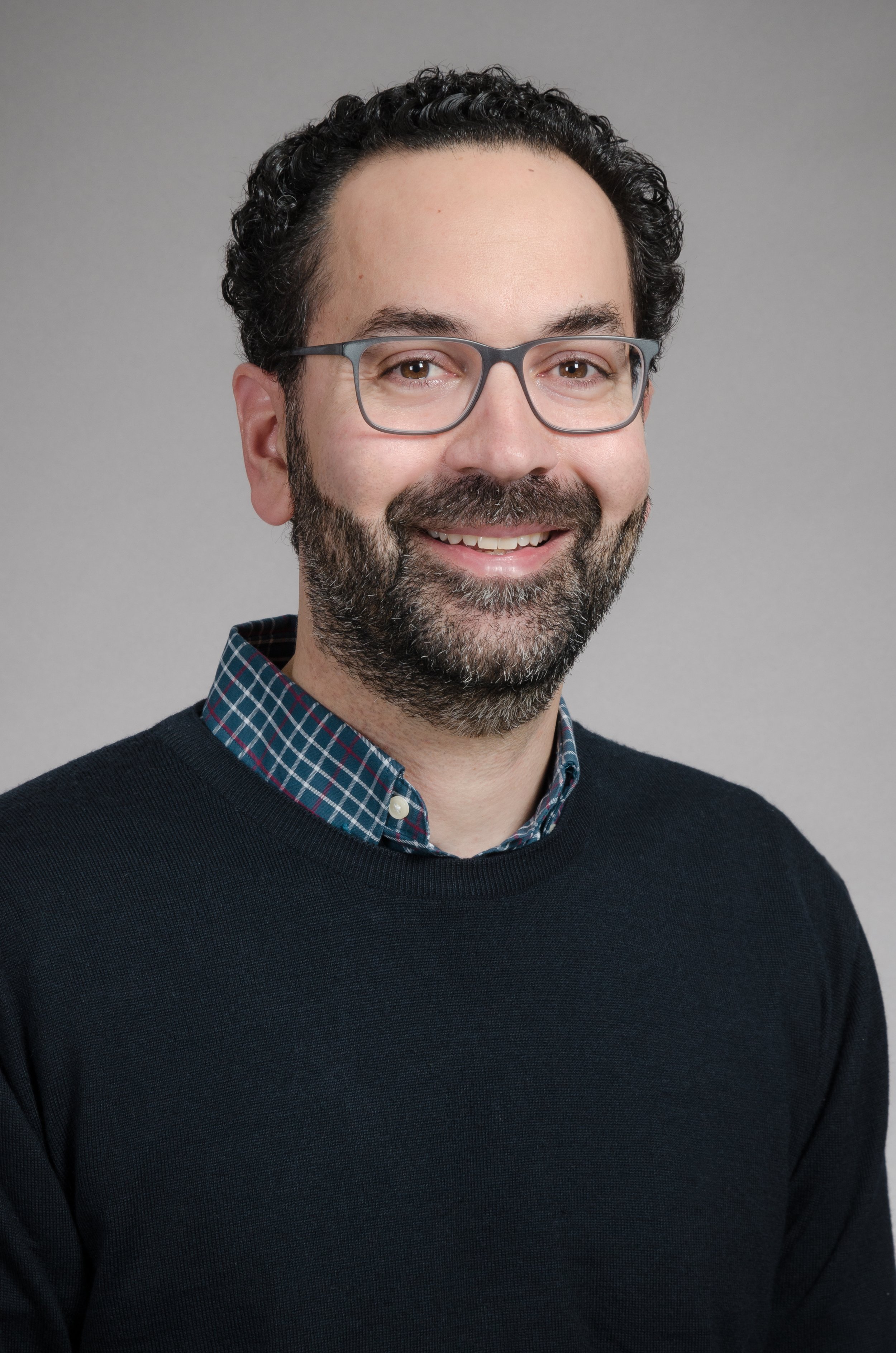
Joseph Mougous, Ph.D.
Microbiology & Biochemistry, University of Washington
Joseph Mougous obtained his PhD in Molecular and Cell Biology at UC Berkeley in the laboratory of Carolyn Bertozzi, where he investigated the biosynthesis and activity of sulfated metabolites produced by Mycobacterium tuberculosis. He then moved to Harvard Medical School for postdoctoral research in the laboratory of John Mekalanos. There, Joseph studied protein secretion in Pseudomonas aeruginosa, the topic that seeded early research directions of his own group at the University of Washington. Currently, the Mougous Lab combines genetic, biochemical, and in situ approaches to define the mechanism of action and physiological consequences of the elaborate defensive and offensive systems produced by bacteria. Ongoing projects includes those focused on the secretion systems that deliver toxic proteins to neighboring bacterial cells, bacterial interactions in the human gut microbiome, novel toxin activities in diverse bacteria, and secreted virulence factors that subvert host cell defenses and facilitate infection. The team is also engaged in applied work seeking to harness the antimicrobial properties of bacteria for therapeutic purposes.
-
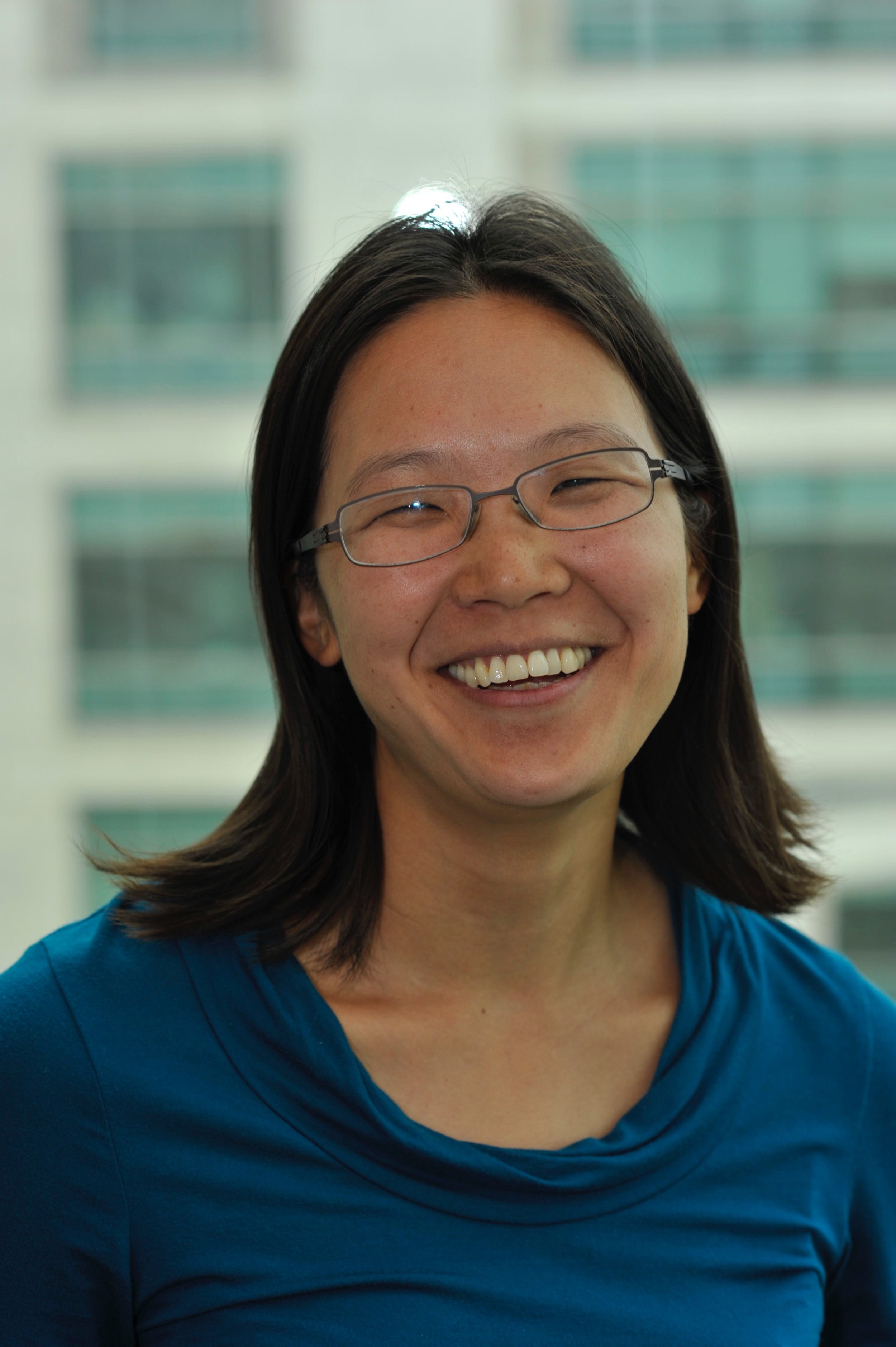
Ellen Yeh, M.D., Ph.D.
Pathology, Microbiology, & Immunology, Stanford University
I am a physician-scientist driven to solve unmet public health need. As a malaria researcher, I could no longer ignore the enormous public health impact of climate change and have pivoted my research to investigate algae and their potential for sustainable biotechnology. We bring our experience in non-model organism biology to tackle understudied environmental microbes as solutions for planet health. I firmly believe that if we would look beyond metazoan, human-centric biology, we would discover a world of innovation. Not only is this functional diversity beautiful and awe-inspiring on its own, they could serve as blueprints for solutions to our environmental challenges and the basis for a new era of synthetic biology. As a scout, I want to enable other academic researchers to chase impact and truly novel biology as the primary goals of their research programs.
-

Dianne Newman, Ph.D.
Microbiology & Geobiology, Caltech
Dianne Newman is the Gordon M. Binder/Amgen Professor of Biology and Geobiology at Caltech. Her research focuses on microbial stress responses, with an emphasis on mechanisms of energy conservation and survival when oxygen is scarce. The contexts that motivate her research span chronic human infections to the rhizosphere, yet are linked by similar physiological questions; she is particularly fascinated by colorful redox-active metabolites and their myriad effects. After getting a BA in German Studies at Stanford University, Dianne earned her PhD in Environmental Engineering at MIT with Francois Morel, a geochemist, and trained as a postdoc at Harvard Medical School with Roberto Kolter, a bacterial geneticist. She is a Fellow of the American Academy of Microbiology, a Member of the American Academy of Arts and Sciences, a Member of the U.S. National Academy of Sciences and a recipient of a MacArthur Fellowship. Currently, she is leading the Ecology and Biosphere Engineering Initiative for Caltech’s Resnick Sustainability Institute and recently joined the Scientific Advisory Committee of the EMBL to advise their microbial ecosystems and planetary biology programs.
-
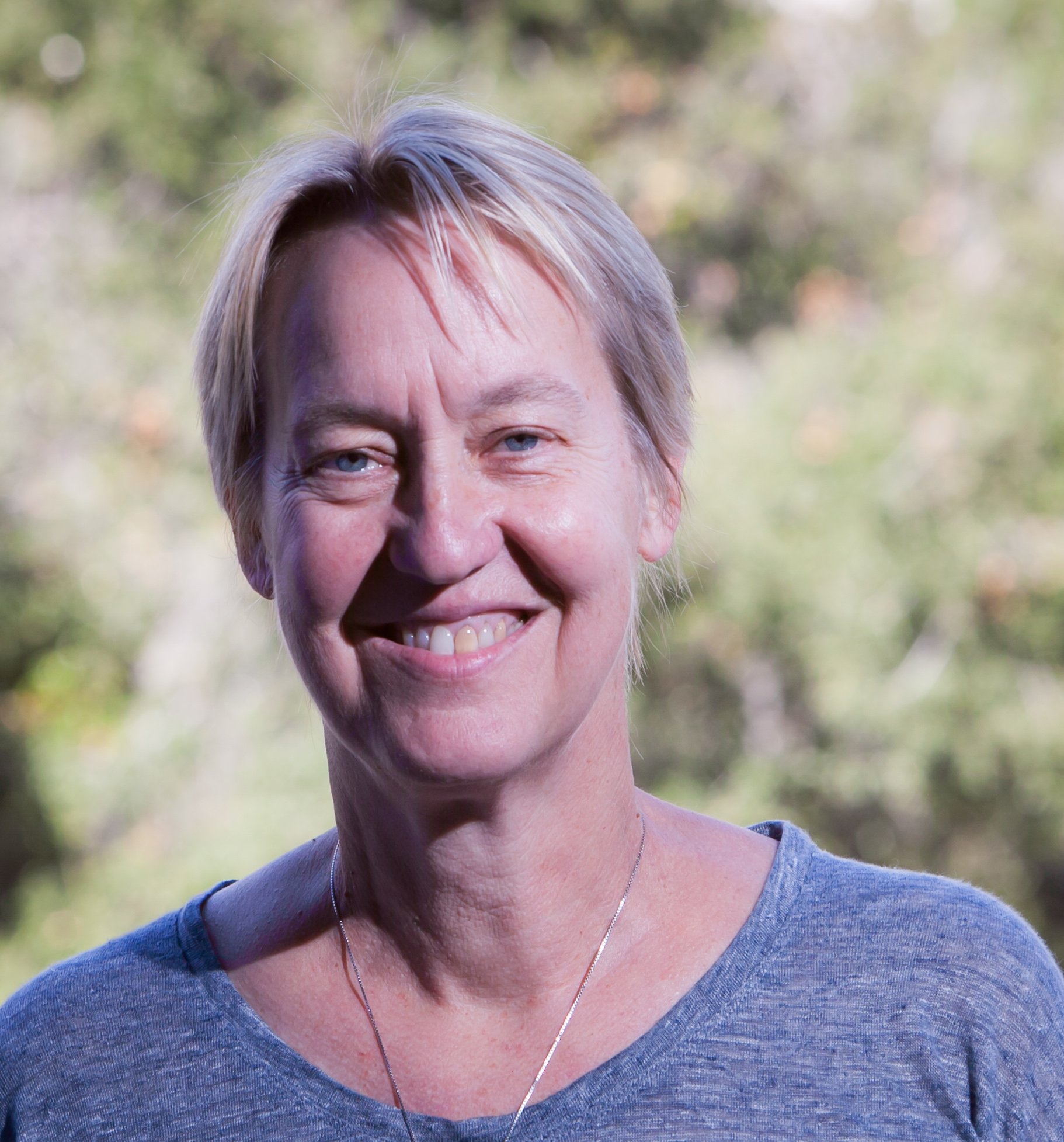
Ginger Armbrust, Ph.D.
Oceanography, University of Washington
Ginger Armbrust is the Richard H. Fleming Endowed Professor of Oceanography at the University of Washington. Her research focuses on the molecular ecology and physiology of marine phytoplankton as these microscopic organisms are responsible for about half the organic matter and oxygen generated on Earth each year. Her work incorporates molecular and optical-based approaches with model organisms in the lab and natural communities at sea to understand how different forces shape the diversity and productivity of marine microbial communities in current and future oceans. She has decades of experience conducting research at sea and in recent years has led several multi-lab research cruises in the North and Equatorial Pacific Ocean.
Armbrust is a Fellow of the American Geophysical Union (AGU), the American Association for the Advancement of Sciences, the American Academy of Microbiology and is a member of the Washington State Academy of Science and was the former Director of the School of Oceanography at the University of Washington. She has received awards from the Botanical Society of American, the Phycological Society, and the AGU. She received her BA from Stanford University and her PhD from Massachusetts Institute of Technology and Woods Hole Oceanographic Institution. She conducted postdoctoral researcher at Washington University.
-

Matthew Sullivan, Ph.D.
Marine Microbiology, The Ohio State University
Matthew B. Sullivan studies viruses that infect microbes in their natural settings. The ‘microbiome’ is increasingly recognized to drive Earth’s ecosystems, including in humans, but it does so under constraints imposed by viruses and other mobile elements. Sullivan pioneered viral ecogenomics as a means to study viruses in complex communities via quantitative viral metagenomic sample-to-sequence pipelines, new approaches to link viruses and hosts, and developing iVirus, a community-available analytical platform. In the oceans, Sullivan has vastly expanded our understanding of the global virosphere, established automatable scalable taxonomic approaches, and elucidated how ‘wild’ viruses evolve and even metabolically reprogram the most abundant photosystems on the planet. Outside the oceans, Sullivan has adapted these toolkits for use in extreme environments, soils and humans with each new environment leading to myriad discoveries that place viruses at the core of these microbial ecosystems including improved understanding of their roles in climate and disease. He has published >200 peer-reviewed papers cited >40K times, and is recognized as a Gordon and Betty Moore Foundation Investigator, a Beckman Mentor, twice a Fulbright Scholar, a Kavli Fellow, an Applied Microbiology International Fellow and Global Ambassador, an American Academy of Microbiology Fellow, and a AAAS Fellow.
-
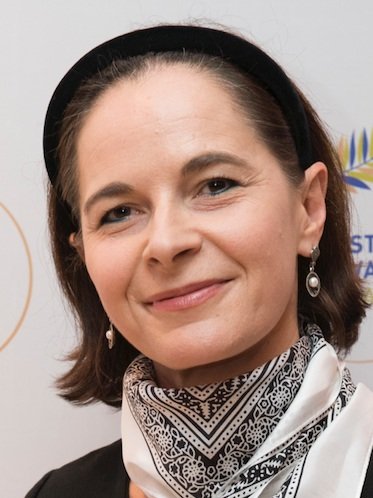
Yasmine Belkaid, Ph.D.
Immunology and Microbiology, Institut Pasteur
Dr. Yasmine Belkaid is the current President of the Institut Pasteur. Previously she was Director of the National Institutes of Health (NIH) Center for Human Immunology, where she also founded and directed the NIAID Microbiome Program. She obtained her Master at USTHB in Algeria and her Ph.D. from the Pasteur Institute in France. Following a postdoctoral fellowship at the National Institute of health (Bethesda) on immune regulation during infection, she started her research program at the Children’s Hospital Research Foundation in Cincinnati. In 2005, she joined the National Institute of Allergy and Infectious Diseases (NIAID) and was appointed senior scientist in 2008. Her laboratory explores fundamental mechanisms that regulate tissue homeostasis and host immune responses and uncovered key roles for the microbiota and dietary factors in the control of immunity and protection to pathogens. Dr Belkaid is a member of the National Academy of Sciences, the American Academy of Arts and Sciences, the National Academy of Medicine and recipient of numerous awards including the Lurie Prize in Biomedical Sciences, the AAI-Thermo Fisher Meritorious Career Award, the Emil von Behring Prize, and the Sanofi-Institut Pasteur Award.

